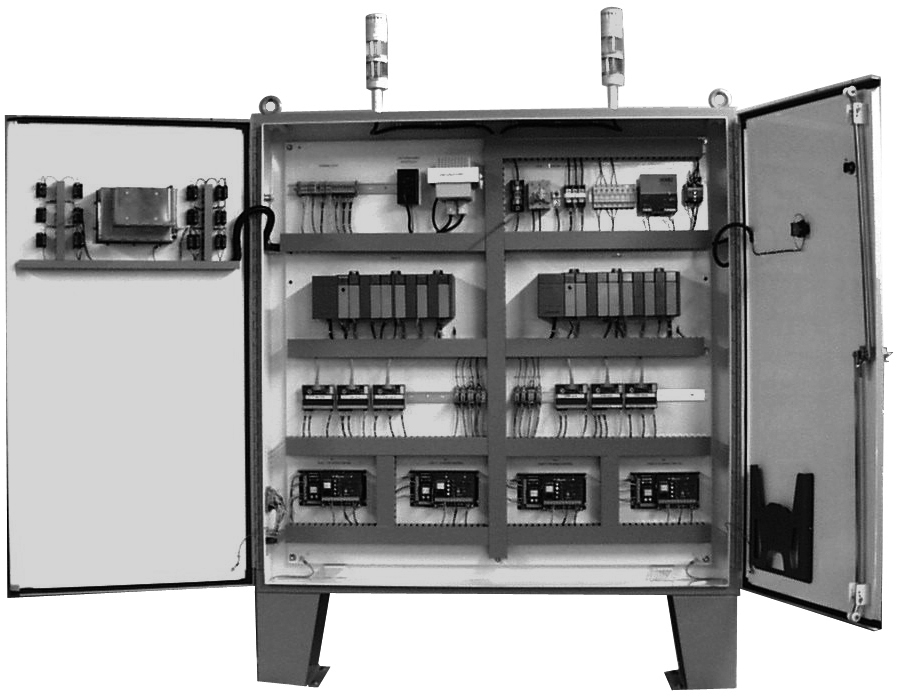Lighting Control Panel Manufacturers in Karnataka

Contact : +91 96205 11529
Lighting Control Panel Manufacturer
In today's rapidly advancing technological landscape, the demand for sophisticated lighting control solutions has surged, driven by the need for energy efficiency, convenience, and enhanced user experience. Lighting control panels have become essential components in residential, commercial, and industrial settings, providing users with the ability to manage their lighting systems effectively. A lighting control panel manufacturer plays a crucial role in this ecosystem, designing and producing panels that cater to various needs and specifications.
What is a Lighting Control Panel?
A lighting control panel is an electrical device that manages the operation of lighting fixtures through a centralized system. These panels allow users to control multiple lights from a single point, providing features such as dimming, scheduling, scene setting, and remote access. They can be programmed to adapt to different scenarios, enhancing energy efficiency and user comfort.
Features and Benefits
-
Energy Efficiency: One of the primary benefits of lighting control panels is their ability to reduce energy consumption. By allowing users to dim lights or turn them off in unoccupied areas, these systems can significantly lower electricity costs and contribute to sustainability efforts.
-
Customization: Lighting control panels can be tailored to meet the specific requirements of different spaces. From simple switches to complex control systems integrated with building management software, manufacturers offer a range of options that can be customized according to the client's needs.
-
User-Friendly Interfaces: Modern lighting control panels feature intuitive interfaces that simplify the user experience. Touchscreen controls, mobile applications, and voice-activated systems are becoming increasingly popular, making it easier for users to manage their lighting environments.
-
Integration with Smart Technologies: As smart homes and buildings gain popularity, lighting control panels can seamlessly integrate with other smart technologies. This integration allows for centralized control of lighting, heating, security systems, and more, all accessible through a single interface.
-
Scalability: A well-designed lighting control panel can easily adapt to the growing needs of a space. Whether it's a residential home or a large commercial building, manufacturers offer scalable solutions that can expand as required.
Manufacturing Process
The manufacturing of lighting control panels involves several critical stages, ensuring that the final product meets industry standards for quality and safety.
-
Design and Engineering: The first step is to design a control panel that meets specific functionality and aesthetic requirements. This involves collaboration between electrical engineers and designers to create schematics and layouts.
-
Component Sourcing: Once the design is finalized, the manufacturer sources high-quality components, such as circuit boards, switches, relays, and housings, from reliable suppliers to ensure durability and reliability.
-
Assembly: The components are then assembled in a controlled environment, where skilled technicians carefully put together the panels, ensuring that all connections are secure and that the panel functions as intended.
-
Testing and Quality Control: After assembly, each lighting control panel undergoes rigorous testing to ensure it meets safety standards and performance specifications. This may include electrical testing, functionality tests, and stress tests.
-
Packaging and Distribution: Finally, the panels are packaged for shipment, ensuring they are protected during transportation. Manufacturers often collaborate with distributors to reach various markets effectively.
Conclusion
Lighting control panel manufacturers are at the forefront of creating innovative solutions that enhance energy efficiency, user convenience, and overall lighting management. By investing in quality design, reliable components, and advanced technologies, these manufacturers play a vital role in shaping the future of lighting systems across diverse applications. With the growing emphasis on sustainability and smart technology integration, the importance of these manufacturers will continue to rise, offering essential solutions for modern living and working environments.
.jpg)